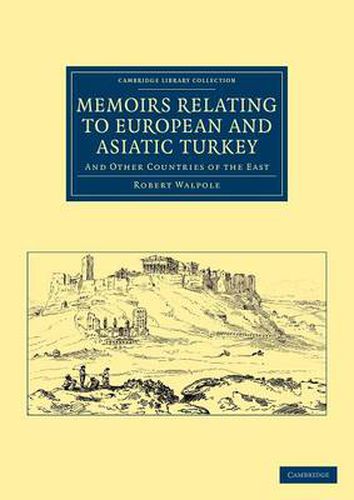Readings Newsletter
Become a Readings Member to make your shopping experience even easier.
Sign in or sign up for free!
You’re not far away from qualifying for FREE standard shipping within Australia
You’ve qualified for FREE standard shipping within Australia
The cart is loading…






Robert Walpole (1781-1856), great-nephew and namesake of Britain’s first prime minister, was a classical scholar and clergyman. After graduating from Trinity College, Cambridge, he visited Greece and the Middle East. This work, first published in 1817 and reissued in its second edition in 1818, consists of extracts from the unpublished papers of J. B. S. Morritt, John Sibthorp, Philip Hunt, J. D. Carlyle and other travellers, with descriptions of antiquities, and notes by the editor. The topics vary considerably and reflect the wide interests of contemporary educated and travelled men at a time when many were extending their Grand Tour to the Eastern Mediterranean. They include discussions of the weakness of the Turkish government, observations on natural history, accounts of Greek Orthodox monastic libraries including those of Mount Athos, and descriptions of Greek pottery and archaeological excavations. The book remains a rich source for scholars from a wide range of disciplines.
$9.00 standard shipping within Australia
FREE standard shipping within Australia for orders over $100.00
Express & International shipping calculated at checkout
Robert Walpole (1781-1856), great-nephew and namesake of Britain’s first prime minister, was a classical scholar and clergyman. After graduating from Trinity College, Cambridge, he visited Greece and the Middle East. This work, first published in 1817 and reissued in its second edition in 1818, consists of extracts from the unpublished papers of J. B. S. Morritt, John Sibthorp, Philip Hunt, J. D. Carlyle and other travellers, with descriptions of antiquities, and notes by the editor. The topics vary considerably and reflect the wide interests of contemporary educated and travelled men at a time when many were extending their Grand Tour to the Eastern Mediterranean. They include discussions of the weakness of the Turkish government, observations on natural history, accounts of Greek Orthodox monastic libraries including those of Mount Athos, and descriptions of Greek pottery and archaeological excavations. The book remains a rich source for scholars from a wide range of disciplines.